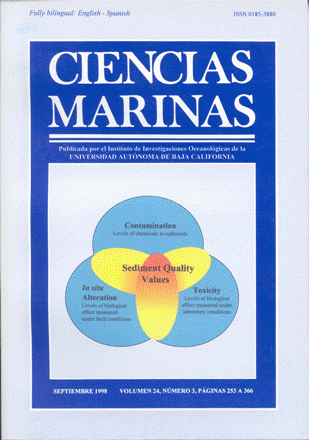Allelic and genotypic variation of leucine-aminopeptidase (Lap-2) and phosphoglucomutase (Pgm) in Procambarus clurkii (Decapoda: Cambaridae), acclimated at different temperatures and exposed to thermal hardening
Main Article Content
Abstract
In this study, the allozymic and genotypic variation of leucine-aminopeptidase (Lap-2) and phosphoglucomutase (Pgm) in Procambarus clarkii from Baja California is analyzed, under different thermic conditions. The repeated exposure of the organisms to the critica1 thermal maximum (CTMax) did not show a hardening response. However, there are differences in the allelic and genotypic frequencies of Lap-2 and Pgm among the organisms acclimated at 20 and 33°C and the field population. On the other hand, the frequencies of the heterozygote genotypes of Lap-2 and Pgm are higher in the final CTMax of 20 and 33°C compared to the field population. These results show a variation in the allozymic and genotypic frequencies which are determined by the effect of temperature on P. clarkii. Also observed is a selection in favor of the heterozygote organisms in the CTMax.
Downloads
Article Details
This is an open access article distributed under a Creative Commons Attribution 4.0 License, which allows you to share and adapt the work, as long as you give appropriate credit to the original author(s) and the source, provide a link to the Creative Commons license, and indicate if changes were made. Figures, tables and other elements in the article are included in the article’s CC BY 4.0 license, unless otherwise indicated. The journal title is protected by copyrights and not subject to this license. Full license deed can be viewed here.

